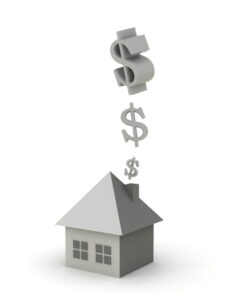
We’re going to make an educated guess here and say that if you’re in the market for a new furnace installation this time of the year, then you’re probably in a bit of a rush. But, we have to discourage you from making this decision too quickly. It’s one you want to take time on, otherwise you could wind up with a heating system that is not properly matched to your specific needs and household. Therefore, it won’t work as efficiently as you expect or need it to.
About that efficiency—efficiency is defined as the rating of heating output of heating equipment compared to the amount of energy it consumes. But this doesn’t necessarily mean that a heating system with a higher efficiency rating will cost less to operate by default. A great example of this is when you’re comparing the AFUE ratings of an electric furnace to a gas furnace.
AFUE Ratings
Let’s dive into how exactly furnaces are rated for efficiency. When you look at your furnace’s stats, you will see what’s called an AFUE rating, or annual fuel utilization efficiency rating. This is a measurement of energy efficiency of a heating system, and it is listed as a percentage. That percentage defines the amount of the energy source (gas or electric) that the furnace converts directly into heat energy that gets sent into your home.
The remaining energy goes to waste as exhaust, meaning that all gas furnaces will lose some efficiency. So a mid-range gas furnace with an AFUE rating of 80%, for example, converts 80% of its natural gas into heat and loses 20% as exhaust through a flue.
Standard Efficiency Ratings for Furnaces
The standard efficiency rating has increased for furnaces throughout the years. For a long while, the standard high-efficiency furnace had an AFUE around 70%. If your furnace is around a decade old, it’s likely that yours has an AFUE a little higher than that, probably around 80-85%. Modern high-efficiency gas furnaces, however, typically score in the 90’s, and there are even condensing furnaces that have AFUE ratings of 98%.
With electric furnaces, the AFUE rating is far simpler. No energy is wasted, so all electric furnaces have an AFUE of 100%.
“Oh, So Electric Furnaces Cost Less to Run?”
Not quite! When it comes to furnaces, as we alluded to at the beginning of this post, higher efficiency doesn’t always mean lower cost. Overall as a fuel source, electricity is more expensive to use each month than natural gas is. Therefore, selecting a gas-powered furnace with a 90-98% AFUE rating could cost you less in energy bills, ultimately, than running a 100% AFUE rated electric heater.
So, what’s the best choice for your home? This depends! If you’ve always used a gas furnace and your system is over a decade old, whatever you choose is probably going to be at least a little more efficient than what you’re using now, and therefore cost you less to operate. But if you’ve been using an electric furnace all this time and you have access to the main gas line, then you may want to consider making a switch to a high-efficiency gas furnace! Our professionals are here to help you make an educated decision.
For more information about furnaces in Swanton, OH and to schedule your heater installation, contact AW Heating & Cooling today! “Your Comfort Specialists.”
